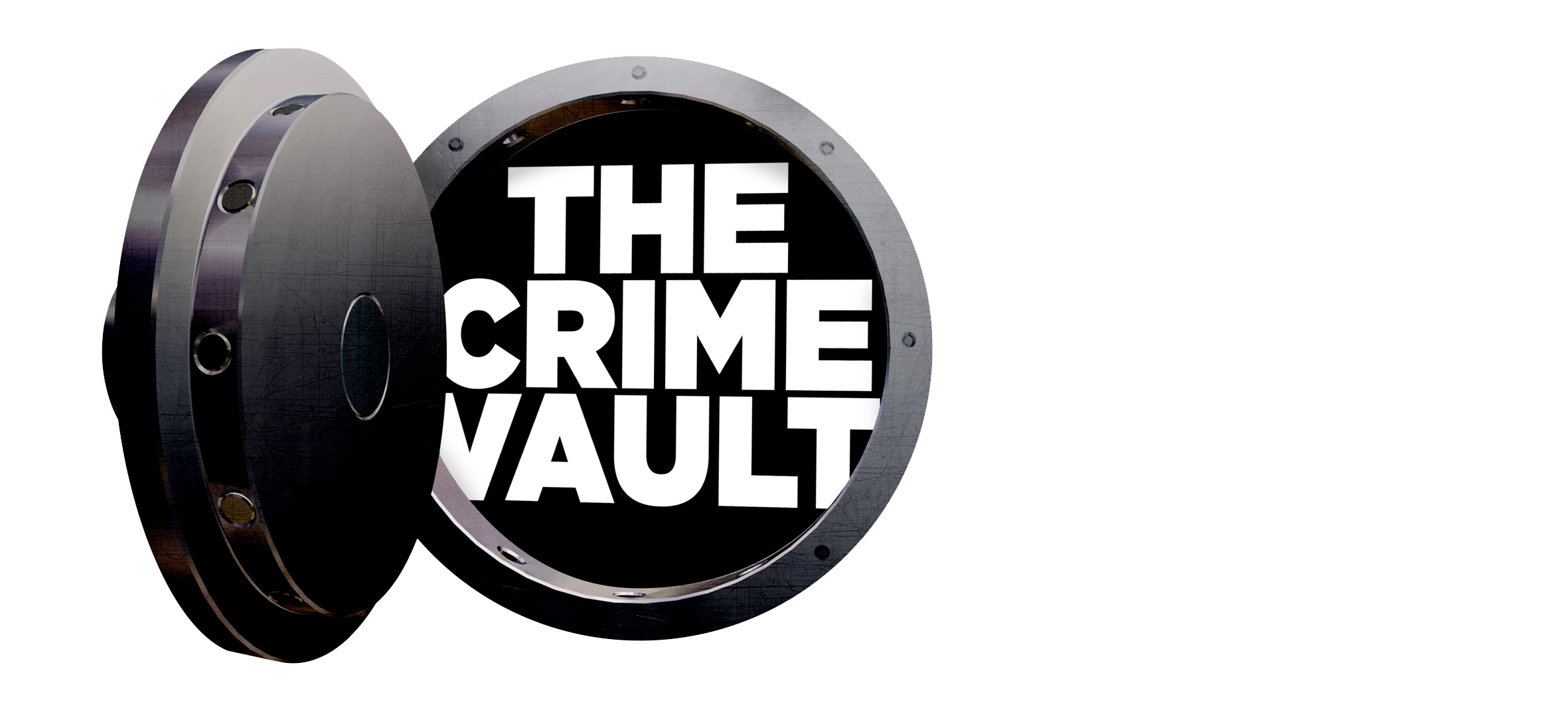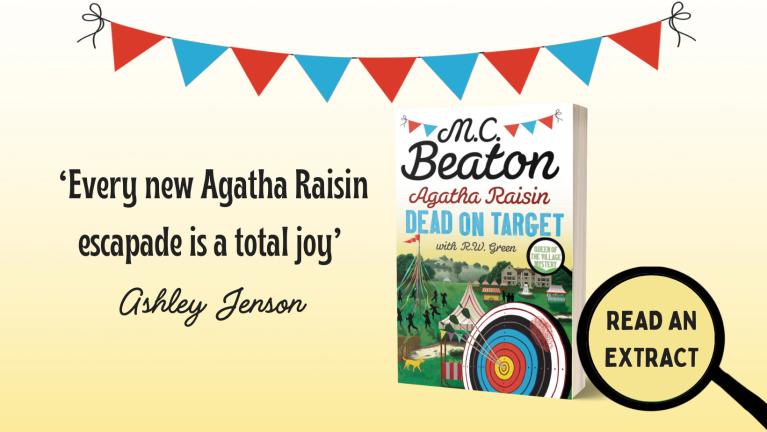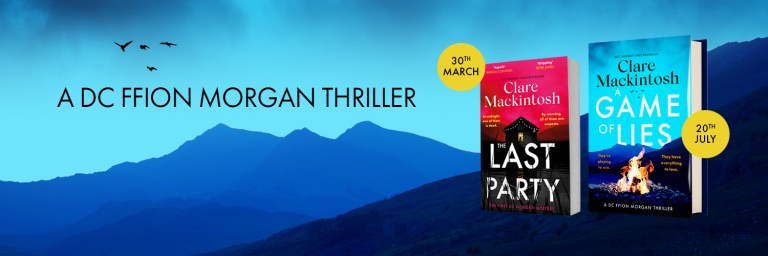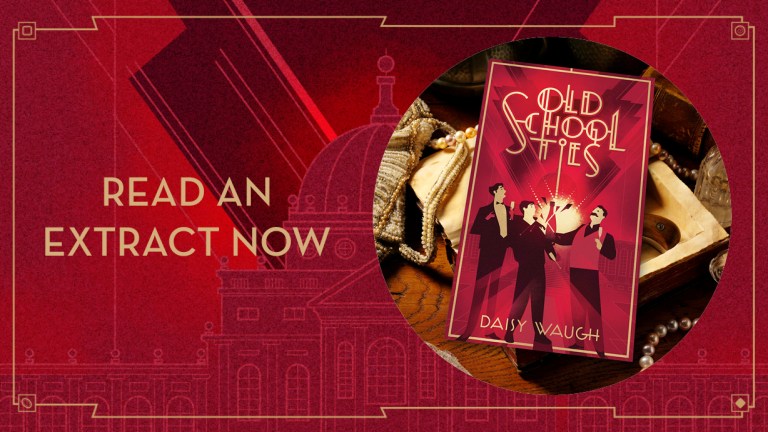Sleepyhead Exclusive Extract

PROLOGUE
Roger Thomas. F.R.C. Path.
Dr Angela Wilson,
HM Coroner,
Southwark.
26 June 2000
Dear Angela,
Following our recent telephone conversation, I write to summarise certain concerns which you might like to include as an addendum to my post-mortem report (PM2698/RT) on Ms Susan Carlish, a twenty- six-year-old stroke victim discovered at home on 15 June.
The PM was performed at St Thomas’s Hospital on 17 June. The deceased died as a result of a brainstem infarction due to basilar artery occlusion from what would appear to be spontaneous vertebral artery dissection. Examination being twelve hours post mortem, I was unable to test for Protein C and Protein S deficiency. This aside, and taking into consideration that Ms Carlish was an occasional smoker, there would still appear to be an absence of conventional risk factors for stroke. I also discovered some minor neck trauma with ligamentous damage at C1 and C2 vertebral level though this would not be inconsistent with some previous whiplash or sporting injury. Traces of a benzodiazepine were discovered in the blood. Enquiries have produced a prescription for Valium made out to Ms Carlish’s flatmate eighteen months ago.
While I remain in no doubt as to the cause of death, and concede that all police enquiries have drawn a blank, I am consulting a number of colleagues and copying this letter to all pathology departments and Coroners Courts in the Greater London area. I would be interested to confer with anyone who may have dealt with the body of a stroke victim (prob. female 20–30) displaying any or all of the following peculiarities:
Absence of conventional risk factors
Torn ligaments in neck
Benzodiazepines in the bloodstream
If you wish to discuss my findings, with a view perhaps to a second post-mortem examination, I would of course be delighted to chat with you further.
Yours sincerely,
Dr Roger Thomas FRC Path, Consultant Pathologist
P.S. The condition of the body (which honked like a pair of freshly scrubbed wellies!), was as I told you, of no concern to the authorities and delighted the morticians, but it was, to say the least, a little disconcerting!!
PART ONE
THE PROCEDURE
‘Wake up, Sleepyhead . . .’
And lights and voices and a mask and sweet fresh oxygen in my nostrils . . .
And before?
Me and the girls are linking arms to belt out ‘I Will Survive’ and scare the shit out of every white-sock-wearing Camberwell Casanova in the club . . .
And now I’m dancing on my own. At a cashpoint, for God’s sake! Unfeasibly pissed. Top night.
And I’m struggling to get the key in the door.
And there’s a man in a car with a bottle of champagne. What’s he celebrating? One more can’t hurt on top of a bucketful of tequila . . .
And we’re in the kitchen. I can smell some sort of soap. And something else. Something desperate.
And the man is behind me. I’m kneeling. If he wasn’t holding me up I’d flop on to the floor. Am I that far gone?
And his hands are on my head and on my neck. He’s very gentle.
Telling me not to worry. And . . . nothing . . .
ONE
Thorne hated the idea of coppers being hardened. A hardened copper was useless. Like hardened paint. He was just . . . resigned. To a down-and-out with a fractured skull and the word scum carved into his chest. To half a dozen Girl Guides decapitated courtesy of a drunken bus driver and a low bridge. And the harder stuff. Resigned to watching the eyes of a woman, who’s lost her son, glaze over as she gnaws her bottom lip and reaches absently towards the kettle. Thorne was resigned to all this. And he was resigned to Alison Willetts.
‘Stroke of luck, really, sir.’
He was resigned to having to think of this small, girl-shaped thing, enmeshed in half a mile of medical spaghetti, as a break- through. A piece of good fortune. A stroke of luck. And she was barely even there. What was undeniably lucky was that they’d found her in the first place.
‘So who fucked up?’
DC David Holland had heard about Thorne’s straight-for- the-jugular approach, but he was unprepared for the question so soon after arriving at the girl’s bedside. ‘Well, to be fair sir, she didn’t fit the profile. I mean she was alive for a kick-off, and she’s so young.’
‘The third victim was only twenty-six.’ ‘Yes, I know, but look at her.’
He was. Twenty-four and she looked as helpless as a child. ‘So it was just a missing-persons job until the local boys tracked down a boyfriend.’ Thorne raised an eyebrow.
Holland instinctively reached for his notebook. ‘Er . . . Tim Hinnegan. He’s the closest thing there is to next-of-kin. I’ve got an address. He should be here later. Visits every day apparently. They’ve been together eighteen months . . . she moved down here two years ago from Newcastle to take up a position as a nursery nurse.’ Holland shut his notebook and looked at his boss, who was still staring down at Alison Willetts. His old man had known coppers like Thorne but he was the first one that Holland had worked with. He decided he’d better not put the notebook away just yet. Thorne looked like he had a lot more questions. And the bugger did have this knack of asking them without actually opening his mouth.
‘Yeah, so she walks home after a hen night . . . er . . . a week ago Tuesday, and winds up on the doorstep of A and E at the Royal London.’
Thorne winced. He knew the hospital. The memory of the pain that had followed the hernia operation there six months earlier was still horribly fresh. He glanced up as a nurse in blue uniform put her head round the door, looking first at them and then at the clock. Holland caught the look and reached for his ID but she was already shutting the door behind her.
‘Looked like an OD when she came in. Then they found out about this weird coma thing, and she gets transferred here. But even when they discovered it was a stroke there was no obvious link to Backhand. No need to look for benzos and certainly no need to call us.’
Thorne stared down at Alison Willetts. Her fringe needed cutting. He watched as her eyeballs rolled up into their sockets. Did she know they were there? Could she hear them? And could she remember?
‘So if you ask me the only person who’s fucked up is, well, the killer really. Sir.’
‘Find us a cup of tea, Holland.’
Thorne didn’t shift his gaze from Alison Willetts and it was only the squeak and swish of the door that told him Holland had gone.
Detective Inspector Tom Thorne hadn’t wanted Operation Backhand, but was grateful for any transfer out of the brand spanking new Serious Crime Group. The restructuring was confusing everybody and at least Backhand was a straightforward, old-fashioned operation. Still, he hadn’t coveted it like some he could mention. Of course it was high profile, but he was one of that strange breed who was reluctant to take on any case he didn’t seriously think could be solved. And this was a weird one. No question about that.
Three murders that they knew about, each victim suffering death due to the constriction of the basilar artery. Basically some maniac was targeting women in their homes, pumping them full of drugs and giving them strokes.
Giving them strokes.
Hendricks was one of the more hands-on pathologists, but a week earlier, in his laboratory, Thorne had been less than thrilled at having those clammy hands on his head and neck in an effort to demonstrate the killing technique.
‘What the bloody hell d’you think you’re doing, Phil?’ ‘Shut your face, Tom. You’re off your face on tranquillisers. I can do anything I like. I just bend your head this way and apply pressure to this point here to kink the artery. It’s a delicate procedure this, takes specialised knowledge . . . I don’t know. Army? Martial arts, maybe? Either way, he’s a clever bastard. No marks to speak of. It’s virtually undetectable.’
Virtually.
Christine Owen and Madeleine Vickery both had risk factors. One in middle age, the second a heavy smoker on the pill. Both were discovered dead at home on opposite sides of London. That they had recently washed with carbolic soap was noted by the pathologists concerned, and though Christine Owen’s husband and Madeleine Vickery’s flatmate considered this odd, neither could deny (or explain) the presence of a bar of carbolic in the bathroom. Traces of a tranquilliser were found in both stroke victims, and were attributed in the first instance to a prescription for depression, and in the second to an occasional drugs habit. No connection between these tragic yet apparently natural deaths was ever made.
But Susan Carlish had had no generally accepted risk factors for stroke, and the tranquillisers found in the one-room flat in Waterloo, in a bottle with no label, were something of a mystery. It was down to the torn ligaments in her neck and one bloody clever pathologist that they’d even got a sniff of it. Even Hendricks had to admire that particular bit of path work. Very sharp.
But not as sharp as the killer.
‘He’s playing a percentage game, Tom. There are loads of people with high-risk factors for strokes walking about. You, for a start.’
‘Eh?’
‘Still got a gold card at Threshers, have you?’
Thorne had started to protest but thought better of it. He’d been out on the piss with Hendricks often enough.
‘He picks three different areas of London knowing there’s a hell of a slim chance the victims will ever be connected. He goes about his business and we’re none the wiser.’
Now Thorne stood listening to the persistent wheeze of Alison’s ventilator. Locked-in syndrome, it was called. They didn’t know for sure but she could probably hear, see and feel. Alison was almost certainly aware of everything going on around her. And she was completely and utterly unable to move. Not the tiniest muscle.
Syndrome wasn’t the right word. It was a sentence. And what about the bastard who’d passed it? A martial arts nutcase? Special Services? That was their best guess. Their only guess. None the wiser . . .
Three different areas of London. What a mess that had been. Three commanders sitting round a table playing ‘Whose knob’s the biggest?’ and putting Operation Backhand together. He had no worries as far as the team was concerned. Tughan was efficient at least and Frank Keable was a good DCI, if at times a little too . . . cautious. Thorne would have to have a word with him about Holland and his notebook. He never put the bloody thing down. Couldn’t the Division take on a single detective constable with a memory span greater than the average goldfish?
‘Sir?’
Goldfish Boy was back with the tea. ‘Who put us onto Alison Willetts?’
‘That would be the consultant neurologist, er . . . Doctor . . .’ Holland cleared his throat and swallowed. He had a hot plastic cup of tea in each hand and couldn’t get his notebook out. Thorne decided to be nice and reached out to take a cup.
Holland groped for the notebook.
‘Doctor Coburn. Anne Coburn. She’s teaching over at the Royal Free today. I’ve made you an appointment for this afternoon.’
‘Another doctor we’ve got to thank.’
‘Yeah, and another bit of luck as it goes. Her old man’s a consultant pathologist, David Higgins. He does a bit of forensic work. She tells him about Alison Willetts and he goes, “That’s interesting because . . . ”’
‘What? And he says and she says? Bit of a casual post-nookie chinwag, was it?’
‘Don’t know, sir. You’ll have to ask her.’
Standing aside to let a pale, ginger-haired nurse through to change Alison’s feeding line, Thorne decided there was no time like the present. He thrust his untouched tea back at Holland.
‘You stay here and wait for Hinnegan to show up.’ ‘But, sir, the appointment isn’t until four-thirty.’ ‘So I’ll be early.’
He trudged along a maze of cracked red linoleum-floored corridors in search of the quickest way to the exit. And away from the smell that he and every right-minded person in the world hated so much. The Intensive Therapy Unit was in a newer wing of the National Hospital for Neurology and Neurosurgery, but it still had the smell. Disinfectant, he reckoned. They used something similar in schools but that just took him back to forgotten gym kits and the horror of PE in underpants. This was a different smell.
Dialysis and death.
He took the lift down to the main reception area, whose imposing Victorian architecture made a surprising contrast with the modern, open-plan style of the hospital’s newer parts. There was a faded grandeur about the stone tablets that lined the walls and the dusty wooden plaques inscribed with the names of the hospital consultants. Pride of place went to the full-length portrait of Diana, Princess of Wales, a former patron of the hospital. The painting was accomplished, unlike the bust of the princess that stood on a plinth next to it. Thorne wondered if it had been sculpted by a patient.
As he neared the exit, the muttered curses and dripping bodies coming through the main doors towards him told him summer was at an end. A week and a half into August and it was over. He stood beneath the hospital’s elaborate red-brick portico and squinted through the downpour towards where the car was parked, tight against the railings that ran around Queen Square. People scurried through the rain, heads down, across the gardens or towards Russell Square tube station. How many of them were doctors or nursing staff? There were a dozen hospitals or specialist units within a mile of him. He could just see Great Ormond Street Children’s Hospital from where he stood. He turned up his collar and prepared to make a dash for it.
At first he thought it was a parking ticket and he pulled it roughly from beneath the wiper blade. As soon as he removed the single sheet of A4 from the polythene wrapper and unfolded it, he knew it was something else. He carefully inserted it back into its protective wrapping, wiped off the rain and peered at the neatly typed message. After the first four words he was no longer aware of the rainwater running down the back of his neck.
DEAR DETECTIVE INSPECTOR THORNE. WHAT CAN I SAY? PRACTICE MAKES PERFECT. AND DON’T YOU JUST ENVY HER THAT PERFECT . . . DISTANCE? I INVITE YOU TO CONSIDER THE CONCEPT OF FREEDOM. TRUE FREEDOM. HAVE YOU EVER REALLY CONSIDERED IT? I’M SORRY ABOUT THE OTHERS. TRULY. I SHALL NOT INSULT YOUR INTELLIGENCE WITH PLATITUDES ABOUT ENDS AND MEANS BUT OFFER IN MITIGATION THE THOUGHT THAT A MASSIVE UNDERTAKING OFTEN HAS AN APPROPRIATE MARGIN OF ERROR. IT’S ALL ABOUT PRESSURE DETECTIVE INSPECTOR THORNE BUT THEN YOU’D KNOW ALL ABOUT THAT. SERIOUSLY THOUGH TOM, MAYBE I’LL CALL YOU SOMETIME.
Pressure . . .
Thorne looked around, his heart thumping. Whoever left the note must be close – the car hadn’t been there long. All he could see were grim-set, rain-soaked faces and beetling umbrellas and Holland dodging the puddles as he loped across the road towards him.
‘Sir, the boyfriend’s just arrived. You must’ve passed him on your way out.’
The look on Thorne’s face stopped him dead in his tracks. ‘Alison is not a fuck-up, Holland.’
‘Of course not, sir. All I meant was—’
‘Listen. This is what he wants.’ He pointed back towards the hospital. ‘Do you understand?’ His shirt was plastered to his back. Rain and sweat. He could barely understand it himself. He could hardly believe what was struggling to come out of his mouth. Holland stared at Thorne open-mouthed as he spoke the words that would cost him so much. Words which, even as they formed on his lips, told him that he should never have agreed to become part of this.
‘Alison Willetts is not his first mistake. She’s the first one he’s got right.’






